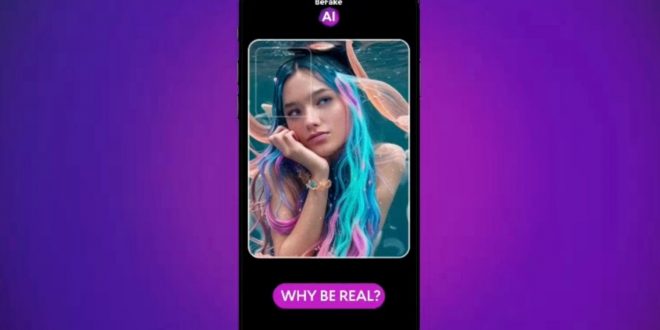BeFake, an AI-augmented social network based on Gen Z app BeReal, raised $3 million in seed funding. The app’s name, a play on BeReal’s authentic photo sharing among friends, implies the opposite. BeFake users grab photos with both the front and back cameras and customize them with AI using in-app presets or custom prompts instead of showing what they’re doing.
Alias Technologies, an applied AI company, created the social media app using generative media and multi-modal AI systems.
Kristen Garcia Dumont and Tracy Tracy Lane, the former executives of Machine Zone, which AppLovin acquired in 2020, founded Alias in 2021. As CEO of Machine Zone, Dumont developed and launched two profitable mobile games, World War Rising and Final Fantasy XV: A New Empire, earning over $1 billion. Lane, the former COO, managed community, moderation, compliance, and platform partnerships.
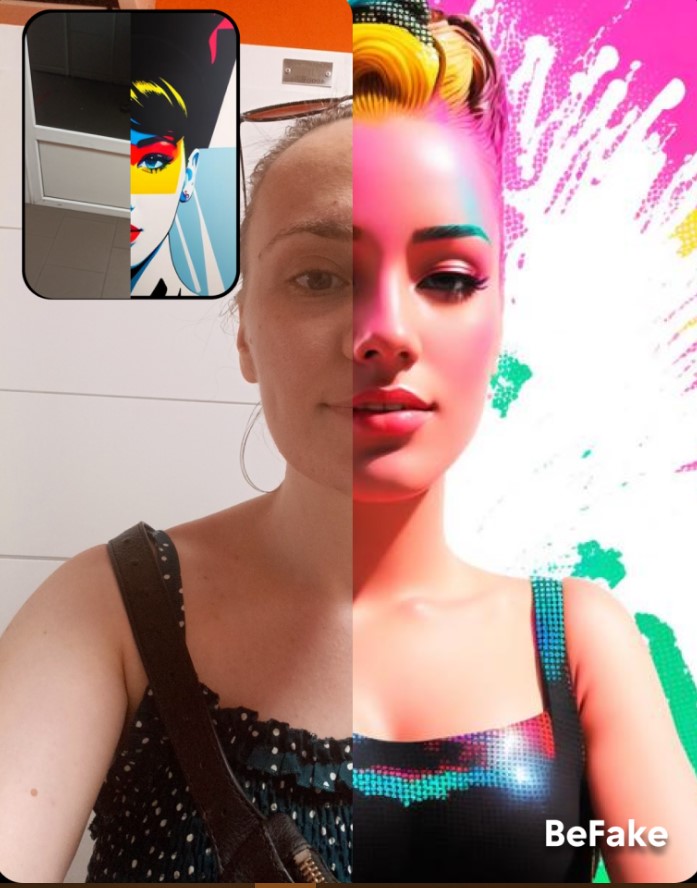
Now the founders want to take BeReal’s push notification-driven posting model and use Alias’ AI technology to turn photos into AI-augmented visuals. Users can express their authentic creativity, not their total authenticity.
Despite being in a different market from gaming, Dumont says the two industries overlap more than people realize.
“We leveraged AI for monetization,” she says. In other words, what should be offered to a player?When do you offer a sale, what do you include, how does it look, and how do you monetize that user? Dumont continues. “But we also started using it for player matching.”
The algorithms improved player retention and relationship-building, even among strangers from different countries.
The idea of gamers connecting without using their real identities inspired BeFake.
“They use a separate digital identity. “Seeing the magical connection develop because algorithms got it right was definitely a spark moment,” Dumont says.

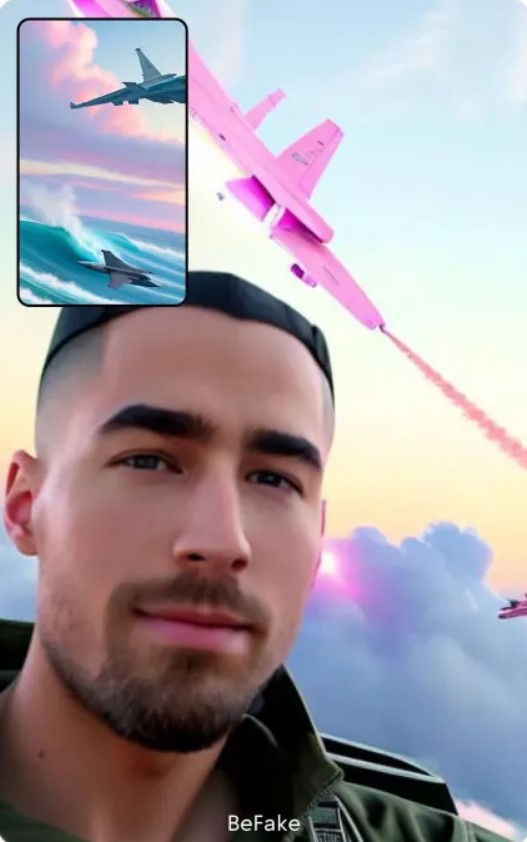
Other front-back apps like BeReal and Frontback work similarly to BeFake. Users take front and back photos on their phones and then choose a preset or type a prompt to create an AI image.
The app offers style and custom location prompts, such as fantasy imagery or Mount Everest. Otherwise, users can type their own prompts to imagine themselves in different scenarios.
The company uses Stable Diffusion with a custom denoising loop. Its proprietary pipeline components emphasize the app’s social network nature. That means it must work with candids, zoomed-in photos, multi-person photos, etc.
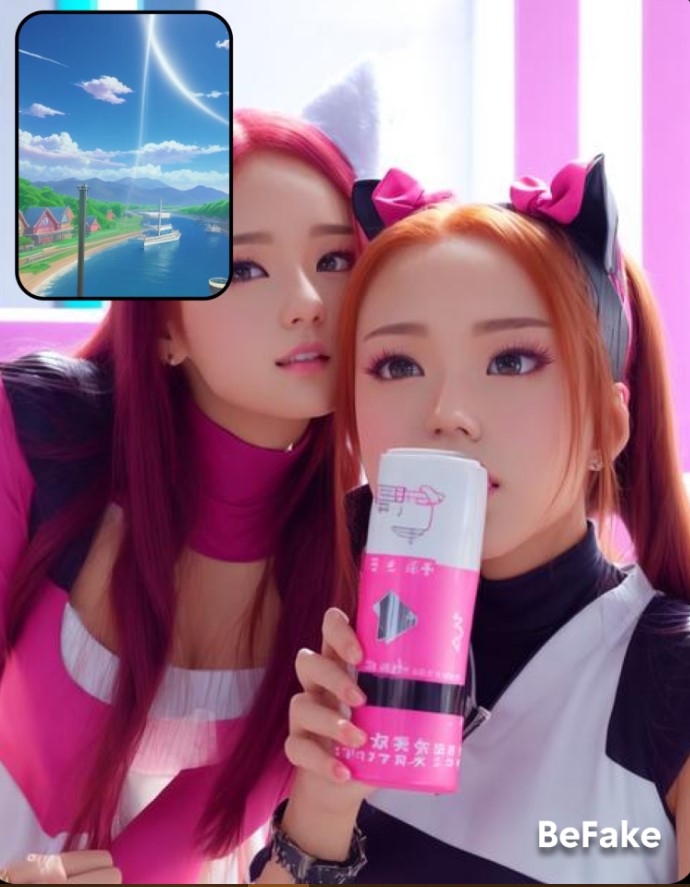
BeFake doesn’t require dozens of selfies to start, unlike other AI apps. Also, it applies AI-powered changes in under 30 seconds, usually less than 10. However, users spend at least 10 minutes per session designing AI.
Augmented photos can be shared with friends, in the main discovery feed where AI creators can build a following, or on other social media. You can also switch between the normal and AI photos, which is fun. Since every photo will be unique, the company thinks its feed will be more interesting than BeReal.
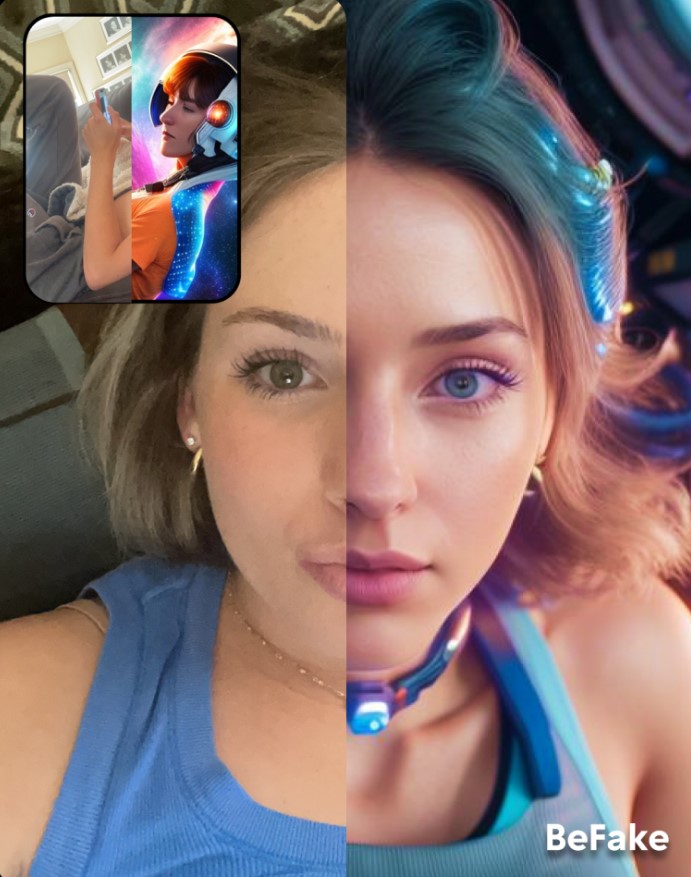
When asked why they chose the name “BeFake,” which makes the app sound like a parody of BeReal rather than a serious attempt to build a standalone social network, Dumont said they wanted to reject the “whole concept where you either need to Facetune yourself or perfectly curate yourself.”
Since users started curating their “real” moments on BeReal, she says it’s fake.
“Hurry downstairs and pretend you have 20 friends. Brush your hair, take a side pic, right? It was unauthentic, she says. “So it’s less about BeReal and much more about this full and total rejection of the authenticity movement, which is inauthentic,” Dumant says.
Since BeFake launched on the App Store and Google Play this month, the company is not sharing downloads or user adoption metrics, but it is seeing triple-digit week-over-week growth.
Subscriptions allow users to post outside the time window or more than once per day by paying for compute time to create AI images on BeFake. The plans cost $2.99/week, $9.99/month, or $99.99/year. However, the company sends a daily push notification alerting users to a 20-minute free AI image making period.
BeFake founders believe their gaming background will help them stay relevant because they learned you must quickly adapt to users’ changing tastes to retain them.
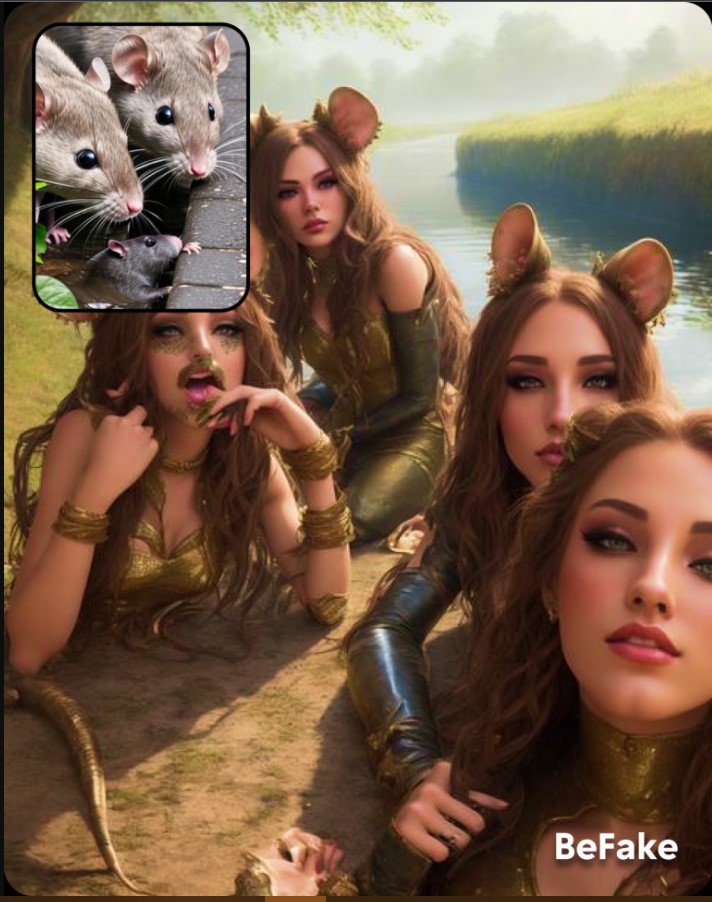
Dumont says, “Part of what we’ve built under the hood is the ability to deploy changes to the app almost on a dime, similar to gaming so we can respond to consumer tastes.”
The moat for most AI apps is not the technology. We have a proprietary pipeline. Other people probably do too. You want to use open-source tools. As open source tools improve, so do you because you can use them, she says. “So don’t be too precious about your engineering pipeline. In AI apps, your moat is your community. We’re focused on building that community, which requires hyper-responsiveness.”
The company is already learning what AI images users like to improve its algorithms.
The 12-person, remotely-distributed company also announced $3 million in seed funding from Khosla Ventures. Next Coast Ventures, Maveron Ventures, Peter Thiel, Joe Lonsdale, and WS Investments also invested. The round closed in April 2022 but was not reported.
 Tech Gadget Central Latest Tech News and Reviews
Tech Gadget Central Latest Tech News and Reviews
